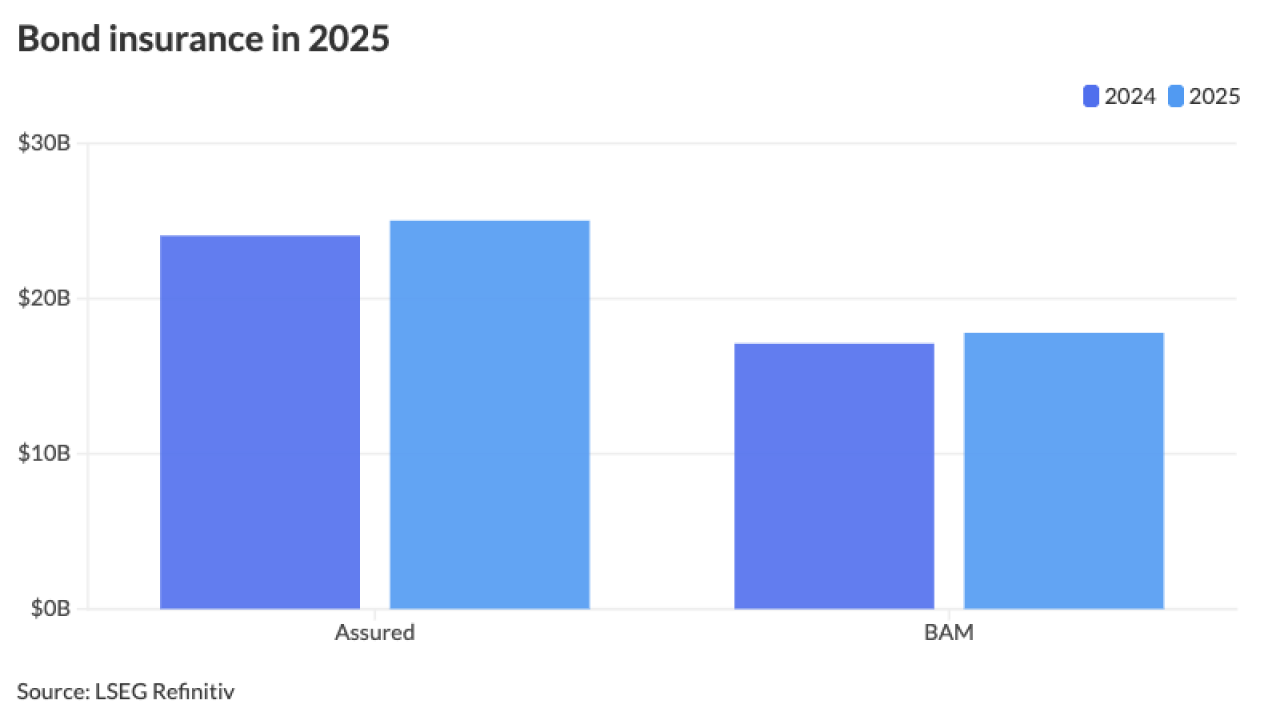
WASHINGTON – State and local groups told members of Congress that tax-exempt bonds are the cornerstone of infrastructure financing, as the lawmakers consider how to increase spending on roads and bridges as well as tax reforms that could entail restrictions on tax exemption.
Tax-exempt bonds are used by more than 50,000 state and local governments, and nearly 75% of infrastructure funding comes from munis, the 29 groups said in a joint letter to House and Senate members.
"We welcome the chance to work with you to develop new tools as a complement to tax-exempt municipal bonds," the groups wrote. "We would note that even new ideas – including variations of public-private partnership models – will likely rely on municipal bonds."
The two-page letter was signed by representatives of the Government Finance Officers Association, the National Governors Association, the U.S. Conference of Mayors (USCM), the National Association of State Treasurers, and the National Association of Counties (NACo) and other groups.
The organizations comprise the Public Finance Network, a coalition of state, local and utility issuers and stakeholders.
While the GOP blueprint for tax reform released last year does not mention the muni exemption directly, its intention of repealing unnamed deductions have made state and local groups uneasy of a cap or repeal.
House Ways and Means Committee Republicans said Tuesday that they are "moving forward aggressively" to turn the blueprint into formal legislation that would eliminate special interest provisions they said keep rates high and "increase confusion."
Michael Belarmino, NACo's associate legislative director and associate general counsel, said the letter is meant to be a "refresher" for lawmakers as the 115th Congress kicks off.
"I'm hoping that this message continues to resonate with them," Belarmino said. "It seems pretty clear that there are many things on their agenda at this point and where tax reform is going to fall is anybody's guess."
The coalition stressed that issuers save on average roughly two percentage points on borrowing costs to finance infrastructure investments through munis, which they said equates to "substantial" savings for taxpayers.
Munis have financed more than $2 trillion in new infrastructure over the past decade, and are on track to finance another $2 trillion over the next ten years, the coalition wrote.
"As the new administration and Congress seek ways to increase infrastructure investments, we would note an incredibly powerful tool already in hand – tax-exempt municipal bonds," it wrote.
The groups argued that munis are the most effective method to finance community infrastructure, as bond issuances are determined and approved through citizen referenda or by elected legislative bodies.
Several state and local groups have told The Bond Buyer that they set their sights on Congress after President-elect Donald Trump told the USCM in December that he supports maintaining the muni exemption.
The Public Finance Network also cited as good resources on munis Reps. Randy Hultgren, R-Ill., and Dutch Ruppersberger, D-Md., two major allies of the muni exemption who chair the bipartisan Municipal Finance Caucus in Congress.





